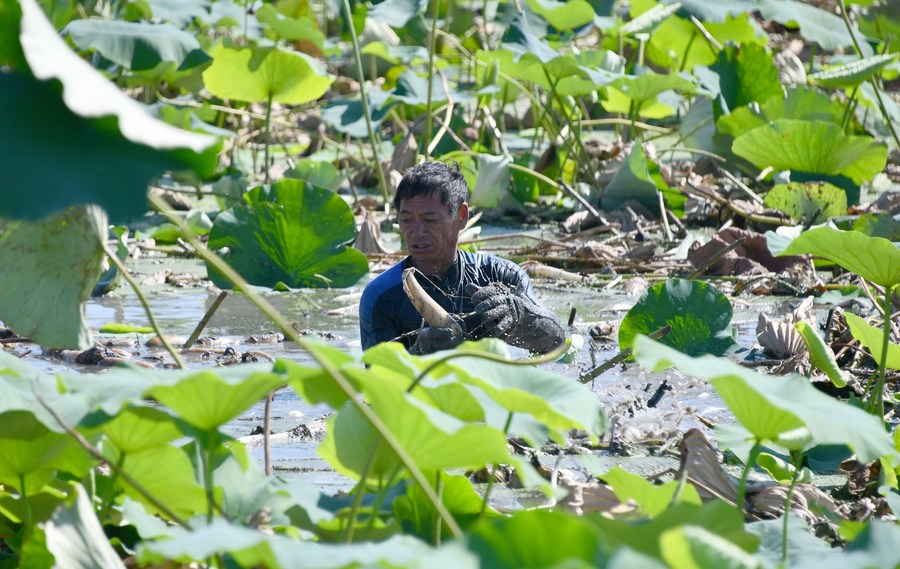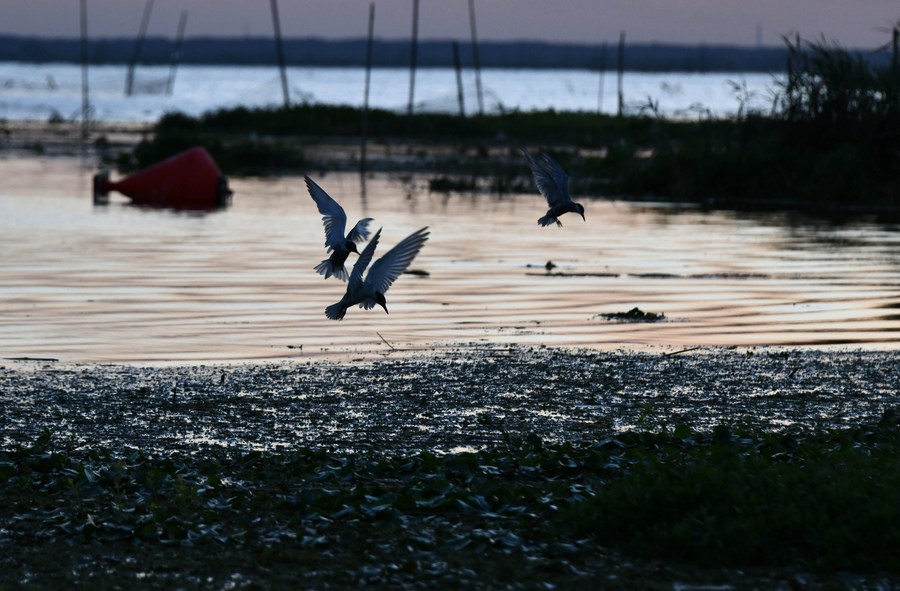* Weishan Lake, the largest freshwater lake in northern China, is also a hub of the Beijing-Hangzhou Grand Canal -- a world heritage site. However, local traditional industries used to cause serious pollution in the lake.
* In contrast to the overdeveloped fishery in the past, the local government has developed a new model of ecological fish farming, which is also used to develop the rural tourism.
* Weishan Lake now covers an area of 1,266 square km with excellent water quality, as the local government practices the concept of "lucid waters and lush mountains are invaluable assets," and promotes the high-quality development of fisheries.

A villager harvests lotus roots near Weishan Lake in Weishan County, east China's Shandong Province, Aug. 24, 2022. (Xinhua/Xu Suhui)
JINAN, Sept. 25 (Xinhua) -- Weishan Lake is the largest freshwater lake in northern China and a hub of the Beijing-Hangzhou Grand Canal -- a world heritage site. However, local traditional industries used to cause serious pollution in the lake.
The heavy pollution was a wake-up call to the locals -- a stark reminder that natural resources should be cherished and used in a more sustainable way.
Today, Weishan Lake in east China's Shandong Province, has become vibrant and charming again.

Wild birds are seen in Weishan Lake in Weishan County, east China's Shandong Province, Aug. 23, 2022. (Xinhua/Xu Suhui)
BIRDS ARE BACK
Weishan and three other lakes together form Nansi Lake and the locals often refer to Nansi Lake by its signature Weishan Lake.
About four decades ago, Nansi Lake was home to the Baer's Pochard, a national first-class protected diving duck in China. However, these lovely little elves gradually disappeared.
People soon found the answer as to why these ducks disappeared. There were 4,000 sewage stations along the 53 rivers which run into Nansi Lake, pouring waste water into the lake. At that time, Weishan Lake was filled with nothing but odorous water, filthy foam and dead fish.
In recent years, a combination of administrative, juridical and technological measures has come into play for the restoration of the ecological environment. Water area occupied by aquaculture was reduced, some enterprises were closed down or relocated, and the pollution discharge standards were gradually raised.
Regional cooperation mechanisms were also established. All cities and counties in the Nansi basin signed agreements on joint pollution prevention and ecological compensation.
In February 2021, people were surprised to re-encounter the Baer's Pochard over Nansi Lake. The water quality has improved dramatically, as evidenced by the return of wild birds.